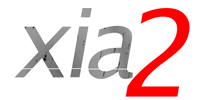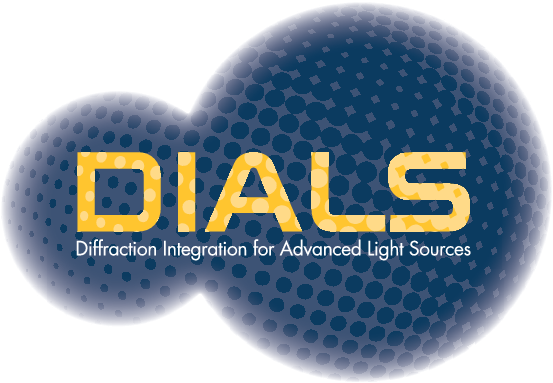Parameters¶
Commonly used program options¶
There are a number of program options used on a daily basis in xia2, which are:
atom=XTell xia2 to separate anomalous pairs i.e. I(+) \(\neq\) I(−) in scaling.
pipeline=3d
pipeline=3diiTell xia2 to use XDS and XSCALE, indexing with peaks found from all images.
pipeline=dialsTell xia2 to use DIALS.
pipeline=dials-aimless
xinfo=some.xinfoUse specific modified .xinfo input file.
image=/path/to/an/image.imgProcess a specific scan. Pass multiple
image=parameters to include multiple scans.
image=/path/to/an/image.img:start:endProcess a specific image range within a scan.
startandendare numbers denoting the image range, e.g.image=/path/to/an/image.img:1:100processes images 1–100 inclusive. As above, one can pass multipleimage=parameters.
small_molecule=trueProcess in manner more suited to small molecule data.
space_group=sgSet the spacegroup, e.g.
P21.
unit_cell=a,b,c,α,β,γSet the cell constants.
hdf5_plugin=/path/to/durin.soSet the path to the HDF5 file reading plugin for XDS (needed for processing of Eiger data)
Resolution limits¶
xia2 uses dials.estimate_resolution to estimate the resolution limit, sharing the
same parameters and defaults.
The default behaviour (cc_half=0.3) can be overridden with e.g.:
xia2 [options] cc_half=None misigma=1 isigma=0.25
See the dials.estimate_resolution documentation for further details.
Phil parameters¶
Note
We have now moved towards moving PHIL (Python-based Hierarchial Interchange Language)
for specifying xia2 program parameters,
which will in the long run help the documentation, but in the mean time you may see some
warnings as certain parameters were changed from -param style parameters to
param= style PHIL parameters. If you see, e.g.:
Warning: -spacegroup option deprecated: please use space_group='P422' instead
Warning: -resolution option deprecated: please use d_min=1.5 instead
Command line option -3d is deprecated. Please use pipeline=3d instead
don’t panic - this is to be expected - but you may want to change the way you run xia2 or your scripts. More of a warning for beamline / automation people! The outcome of this should however be automated generation of command-line documentation and the ability to keep “recipes” for running xia2 in tidy files.
Here is a comprehensive list of PHIL parameters used by xia2:
general {
}
xds {
keep_outliers = True
correct {
}
integrate {
}
init {
}
defpix {
}
index {
max_wedge_size = 5
max_wedge_size_degrees = None
}
colspot {
}
xscale {
}
merge2cbf {
}
}
dials {
outlier {
}
find_spots {
filter_ice_rings = False
}
index {
method = fft1d *fft3d real_space_grid_search
max_cell_estimation {
}
}
}
xia2.settings {
pipeline = 3d 3dd 3di 3dii *dials dials-aimless
project = 'AUTOMATIC'
crystal = 'DEFAULT'
input {
atom = None
anomalous = Auto
}
space_group = None
unit_cell = None
resolution {
keep_all_reflections = Auto
d_max = None
d_min = None
cc_half_method = *half_dataset sigma_tau
reflections_per_bin = 10
labels = None
reference = None
emax = 4
}
multiprocessing {
nproc = Auto
}
symmetry {
chirality = chiral nonchiral centrosymmetric
program = *pointless dials
}
output {
mmcif {
}
}
}



